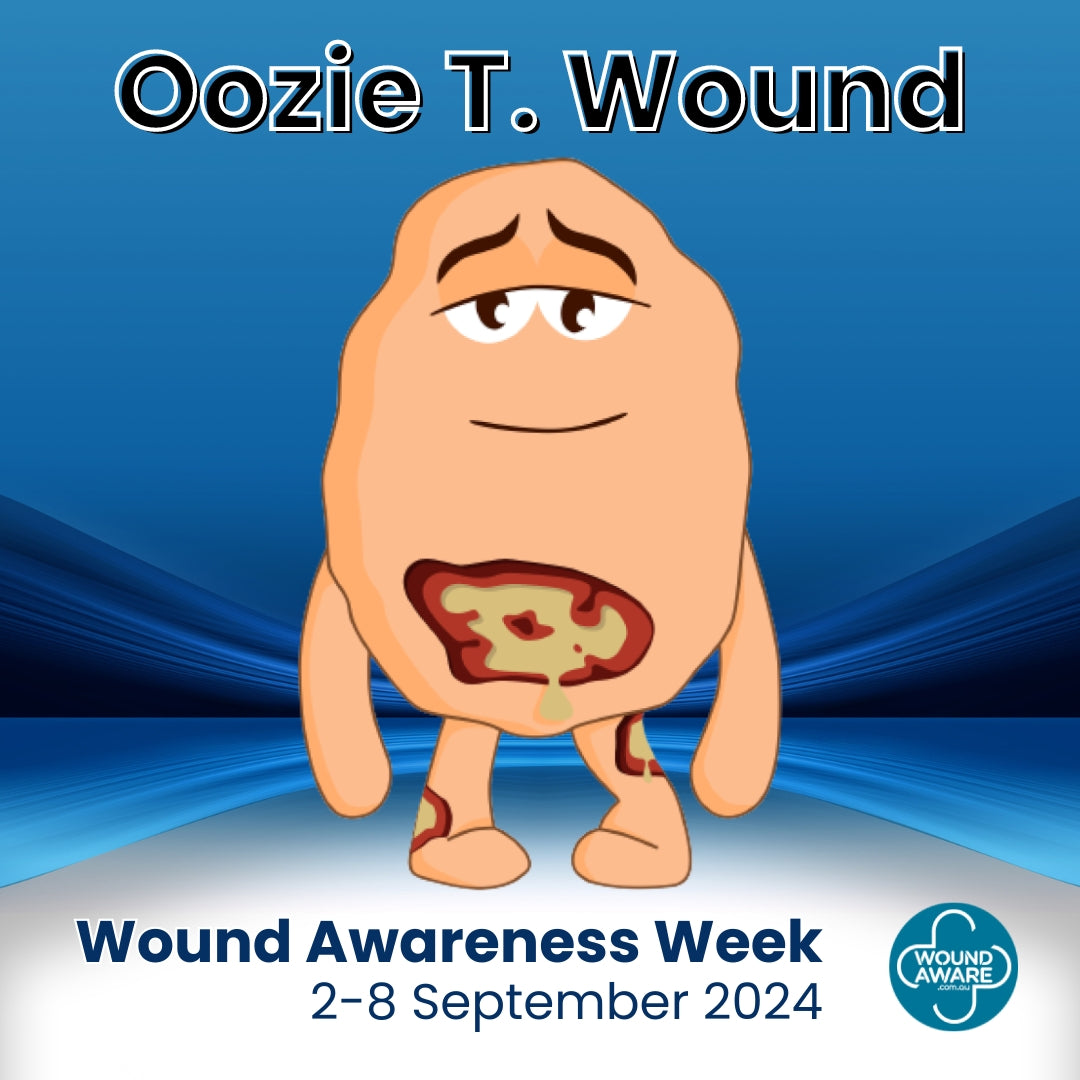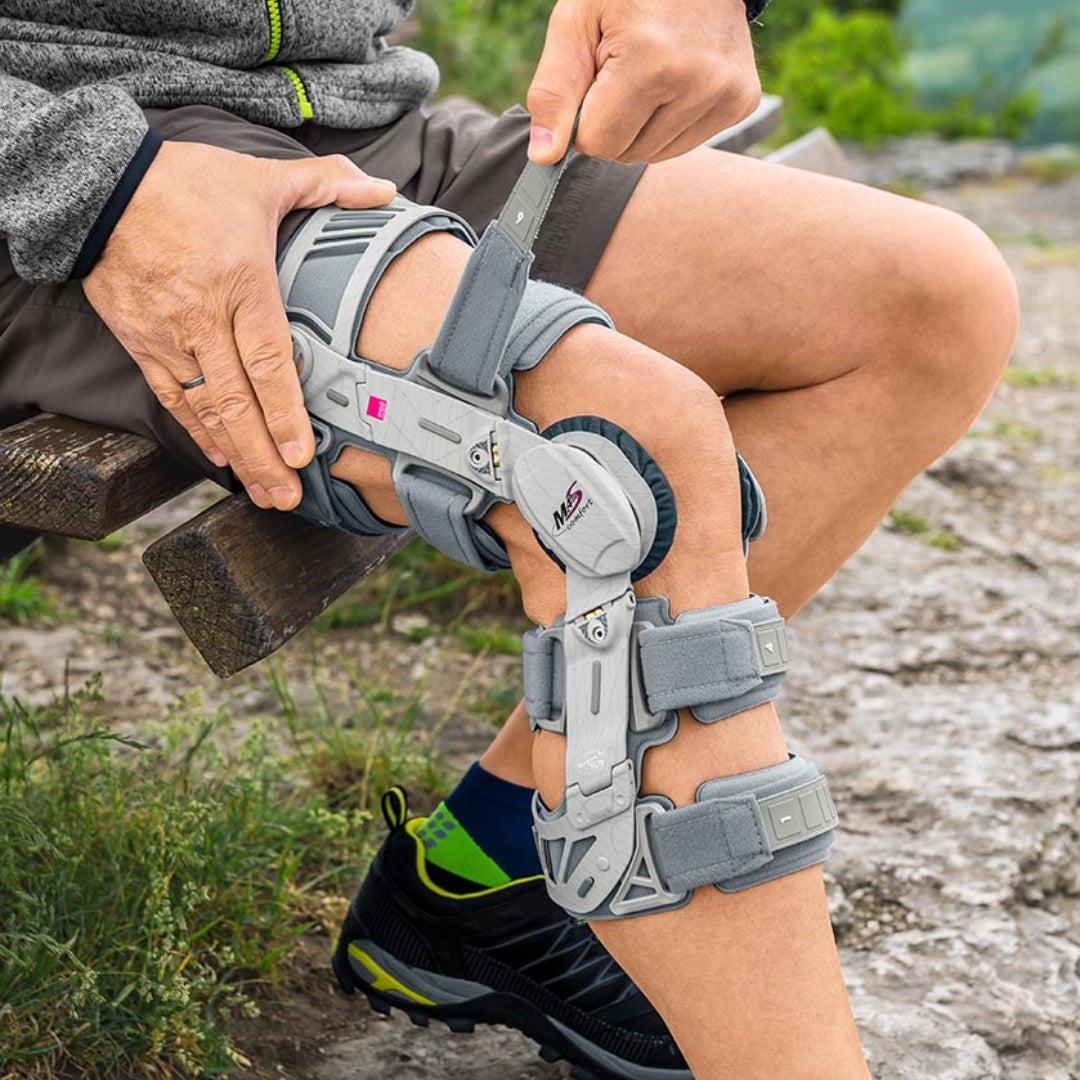medi Australia is proud to support Wound Week 2024, a national initiative organised by Wounds Australia to raise awareness about chronic wounds and their impact. From 2 to 8 September, the week aims to educate Australians about the importance of timely wound care and prevention strategies.
With over 450,000 people affected by chronic wounds, Medi Australia recognises the crucial need for accessible and effective treatment solutions. medi Australia is committed to enhancing wound care outcomes nationwide through collaboration with healthcare professionals and ongoing innovation.
Learn more about Wound Week 2024 at Wounds Australia.

What is a wound?
A wound is a break or tear in the skin caused by accidents, surgery, skin conditions, or underlying issues like diabetes. Wounds that heal quickly are considered acute. However, chronic wounds, which are slower to heal or recur frequently, are a growing concern in Australia, affecting over 450,000 people annually.
If your wound shows signs of becoming chronic, it's essential to seek medical advice to prevent complications. Recognising chronic wound symptoms is crucial for better health outcomes.
Warning Signs of a Chronic Wound
- Pain and Heat: Is your wound red, hot, swollen, and painful?
- Odour: Does the wound emit an unusual or unpleasant smell?
- Excess Fluid: Is your wound producing a thick, yellowish fluid?
- Slow Healing: Has your wound failed to heal after over a month?
If you notice any of these signs, seeking medical attention to prevent further complications is essential.
Every year, more than 450,000 Australians are affected by wounds.
Wounds significantly strain Australia's healthcare and aged care systems, costing over $6 billion annually.

While wounds can occur in anyone, factors such as age, medical conditions, and lifestyle can increase the risk. As you age, the risk of a chronic wound increases because older adults are more likely to have conditions that can slow down wound healing, such as underlying medical issues, medication complications, and reduced mobility.
Health and Medical Conditions
Certain conditions can raise the risk of chronic wounds, including:
- Lymphoedema
- Diabetes
- Cardiovascular disease
- Renal disease
- Obesity
Specific risk factors are associated with various types of chronic wounds
Venous Leg Ulcers
Your risk is higher if you have a history of:
- Deep vein thrombosis (DVT/blood clot in the leg)
- Pulmonary embolism (blood clot in the lung)
- Obesity
- Multiple pregnancies
- Varicose veins
- Long periods of standing
- Limited ankle movement
- Slow-healing leg wounds or a family history of them
Diabetes-Related Foot Disease
Risk factors include:
- Undiagnosed diabetes (discovered with the wound)
- Poorly managed diabetes
- Previous diabetes-related foot conditions
- Peripheral vascular disease (reduced blood flow to extremities)
- Peripheral neuropathy (nerve damage causing reduced sensation in the foot)
Wounds Australia provides a wide range of factsheets on chronic wounds.
For more information, please visit the Wounds Australia website. medi advises always seeking medical attention and discussing with your medical professionals the best solution for your needs as required.





1 comment
zKQvhloT
OscnUrAkuXCJqTGe
Leave a comment
This site is protected by hCaptcha and the hCaptcha Privacy Policy and Terms of Service apply.